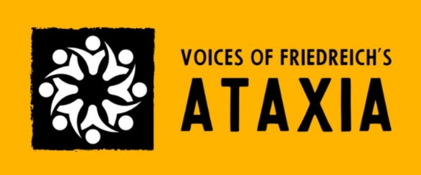Imran Khan (SIE ’14) has made a habit of doing the best he can — not an easy achievement given the circumstances. During his senior year in high school, he was diagnosed with Friedreich’s ataxia, a rare inherited disease that causes progressive nervous system damage and impaired coordination. Khan is not easily deterred. No longer able to walk, he will drive his scooter down the Lawn for graduation. “It will be a real milestone for me,” he says. “I’ll be able to feel that all my hard work and the efforts of those who have assisted me have truly paid off,” he says.


While the disease has imposed its agenda on Khan’s life in the form of complications and hospital stays, he has not let it diminish him. Khan’s best is exceptional by any standard. A systems engineering major, Khan secured a series of prestigious summer internships at Carnegie Mellon University and the Human Engineering Research Lab, co-sponsored with the University of Pittsburgh. He received research funding from SAIC, the multibillion-dollar technology and engineering company, and best-paper awards at professional conferences. And he was just admitted to the University’s doctoral program in systems engineering. As his faculty adviser, Professor James Lambert says, “Imran is among the most motivated and intellectually gifted students I have known in 20 years on the faculty here. He is constantly seeking new opportunities to grow and learn new things.” The everyday experience of dealing with a debilitating disease — the constant recalibration of expectations and ongoing physical and emotional accommodations he has had to make — has inspired Khan’s research.
During the past two years, he has worked on a number of projects with the guidance of Associate Professor Stephen Patek, whose interests lie at the intersection of systems engineering and medical devices. “One of Imran’s distinguishing features as a budding researcher and scholar is his curiosity,” Patek says. “He is always willing to stop and ask questions.” Khan is currently developing a Web-based application that will enable patients with chronic motion disorders to easily record their diet, exercise level, fatigue and sense of well-being, enabling physicians to more closely correlate a patient’s lifestyle and treatment. Khan sees the app as a way of empowering patients. “As a person with a chronic illness, I know that it can sometimes be difficult to have your voice heard,” he said. “Patients need a simple and timely way to communicate important information to their clinicians,” he says.


Khan’s intimate understanding of the barriers that confront people with disabilities has also inspired him to become an advocate for access and information exchange. He has helped promote the annual Disability Awareness Week and made a series of presentations to student groups. He has also met with University administrators, acquainting them with opportunities to improve access on Grounds. “Poor access sends a message to people with disabilities that they’re not as valued as the rest of the community,” he says. Khan also has created a Facebook page for patients with Friedreich’s ataxia, which now has over 3,150 active members. “It’s very helpful for people with such a rare disease to connect with each other, share experiences and understand that they are not alone,” he says. Although Khan has had to take a pragmatic view of his physical limitations, he doesn’t let the disease define him. “Imran is irrepressible, and he can be stubborn,” says Mary Beck, assistant dean for student affairs in the Engineering School. “But it’s through the strength of his personality that he’s made it possible for people to treat him as a normal person.”
Khan would be the very first to insist that achieving this kind of normalcy was a group project. It benefitted from support and consideration not just from Lambert, Patek and Beck, but also from Deborah Berkeley, assistant director of the Student Disability Access Center, and Frances Hershey, associate director of the Center for Engineering Career Development, among many others. “They all made sure I had the opportunity to succeed,” he says. “That’s why I always want to make sure I give back.”

For reference click below

